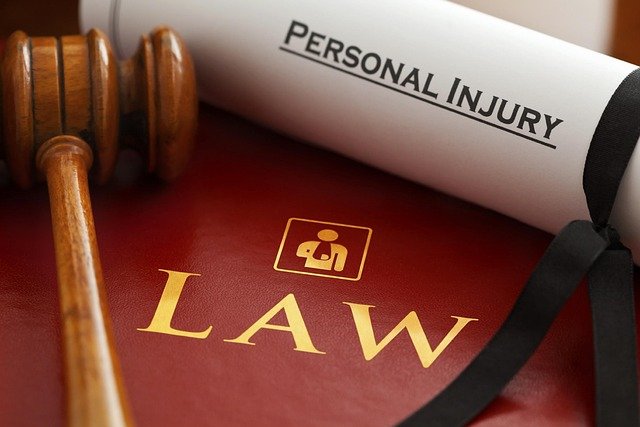How to Find Trusted Legal Assistance Across the United States
Finding reliable legal assistance is crucial when facing legal challenges, whether it involves personal matters, business disputes, or civil issues. Across the United States, there are numerous resources available to connect individuals with qualified attorneys and legal aid organizations. Knowing where to start, understanding the types of services available, and evaluating credentials can save time, reduce stress, and ensure effective representation. This guide explores practical steps, trusted platforms, and professional networks to help you locate reputable legal assistance anywhere in the country.

When confronted with legal challenges, having access to trusted legal assistance becomes paramount. Whether dealing with personal injury cases, family matters, or business disputes, the attorney you choose significantly impacts the outcome of your situation. Legal expenses insurance can provide financial protection against potential legal costs, but finding the right legal representation requires thorough research and evaluation of multiple factors.
What Makes a Lawyer in the USA Trustworthy?
Trustworthiness in legal representation stems from several key attributes. First, proper credentials and licensing are non-negotiable—every attorney should be in good standing with their state bar association. Experience in the specific area of law relevant to your case demonstrates specialized knowledge that general practitioners might lack. A trustworthy lawyer maintains transparent communication, explaining complex legal concepts in understandable terms while keeping clients informed throughout the process.
Professional reputation serves as another critical indicator of trustworthiness. Lawyers who maintain positive relationships with colleagues, judges, and opposing counsel often achieve better outcomes for their clients. Ethical conduct, demonstrated through a clean disciplinary record with the state bar, provides assurance that the attorney adheres to professional standards. Additionally, trustworthy lawyers provide realistic assessments of your case rather than making unrealistic promises about outcomes.
Where to Find Quality Legal Assistance
Several reliable resources exist for locating qualified legal help. The American Bar Association offers a lawyer referral service that connects individuals with attorneys based on specific legal needs and location. State and local bar associations maintain similar programs, often providing initial consultations at reduced rates. Legal aid organizations provide services for those with limited financial resources, while law school clinics offer representation by supervised law students at minimal or no cost.
Online directories like Avvo, Martindale-Hubbell, and FindLaw provide comprehensive listings with attorney ratings, client reviews, and disciplinary records. Many communities host legal clinics where attorneys provide brief consultations on various legal matters. For specialized cases, professional organizations focused on specific practice areas (such as the National Academy of Elder Law Attorneys or the American Immigration Lawyers Association) can connect you with lawyers possessing specialized expertise.
How to Evaluate a Slip and Fall Lawyer
When seeking representation for a personal injury case such as a slip and fall accident, specific evaluation criteria become important. Begin by examining the attorney’s track record with similar cases, including settlement amounts and trial verdicts. Experience negotiating with insurance companies is crucial, as most personal injury cases settle before trial. The lawyer’s approach to case investigation matters significantly—look for attorneys who thoroughly document accident scenes, secure witness statements, and work with appropriate experts.
Resources available to the attorney’s firm can impact case outcomes. Firms with sufficient staff and financial resources can properly investigate claims and retain necessary experts. During initial consultations, assess whether the attorney asks detailed questions about your accident and injuries rather than making immediate promises about compensation. Finally, consider the attorney’s contingency fee structure, ensuring you understand exactly how and when payment occurs if your case succeeds.
Understanding Legal Fee Structures
Legal representation involves various payment arrangements that differ based on practice area and case type. Hourly rates represent the traditional approach, where clients pay for the attorney’s time in increments, typically ranging from $150 to $500+ per hour depending on location and expertise. Flat fees cover entire legal matters for predictable services like will preparation or uncontested divorces. Contingency fees, common in personal injury and some employment cases, involve the attorney receiving a percentage (typically 33-40%) of the settlement or judgment.
Retainer arrangements require an upfront payment from which the lawyer deducts fees as work progresses. Some attorneys offer sliding scale fees based on income or hybrid arrangements combining multiple fee structures. Before engaging legal services, request a written fee agreement detailing all potential costs, including filing fees, expert witness fees, and administrative expenses. Understanding whether consultation fees apply and how billing increments work helps avoid unexpected expenses.
Red Flags to Avoid When Choosing Legal Representation
Several warning signs should prompt caution when selecting an attorney. Guarantees of specific outcomes violate ethical rules, as no lawyer can promise particular results. Excessive caseloads may indicate the attorney cannot provide adequate attention to your matter. Communication issues, such as delayed responses to inquiries or failure to explain legal strategies, often foreshadow future problems.
Pressure to make immediate decisions without sufficient information suggests prioritization of securing business over client interests. Vague or inconsistent fee explanations create potential for billing disputes later. Disciplinary histories with state bar associations indicate past professional misconduct. Attorneys who lack experience in your specific legal issue may struggle with the nuances of your case. Finally, personality conflicts or discomfort in the attorney-client relationship can hinder effective collaboration on your legal matter.
| Legal Service Provider | Services Offered | Key Features/Benefits |
|---|---|---|
| LegalShield | Preventive legal services, document review, consultation | Monthly subscription model, nationwide network of attorneys |
| ARAG Legal Insurance | Comprehensive legal coverage, identity theft protection | Employer-sponsored plans available, covers many common legal issues |
| MetLife Legal Plans | Estate planning, family law, real estate matters | Fixed monthly premium, network of over 17,000 attorneys |
| U.S. Legal Services | Family matters, civil litigation, criminal defense | Family plans and voluntary benefit options for employers |
| LegalZoom Legal Advantage Plus | Document review, attorney consultations, tax advice | Tiered subscription plans, online document preparation |
Prices, rates, or cost estimates mentioned in this article are based on the latest available information but may change over time. Independent research is advised before making financial decisions.
Finding trusted legal assistance requires careful consideration of multiple factors including credentials, experience, communication style, and fee structures. Legal expenses insurance can provide financial protection against potential legal costs while ensuring access to quality representation. By utilizing bar association resources, researching potential attorneys thoroughly, and watching for warning signs, individuals can secure competent legal help tailored to their specific needs. Remember that the right attorney not only possesses technical expertise but also demonstrates commitment to your case and clear communication throughout the legal process.




